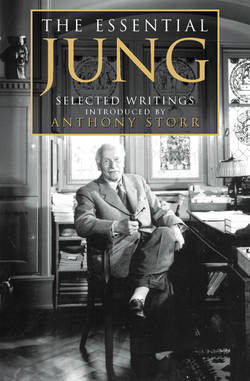Читать книгу The Essential Jung: Selected Writings - Anthony Storr - Страница 26
From “The Stages of Life” CW 8, pars. 772–7
ОглавлениеThe nearer we approach to the middle of life, and the better we have succeeded in entrenching ourselves in our personal attitudes and social positions, the more it appears as if we had discovered the right course and the right ideals and principles of behaviour. For this reason we suppose them to be eternally valid, and make a virtue of unchangeably clinging to them. We overlook the essential fact that the social goal is attained only at the cost of a diminution of personality. Many – far too many – aspects of life which should also have been experienced lie in the lumber-room among dusty memories; but sometimes, too, they are glowing coals under grey ashes.
Statistics show a rise in the frequency of mental depressions in men about forty. In women the neurotic difficulties generally begin somewhat earlier. We see that in this phase of life – between thirty-five and forty – an important change in the human psyche is in preparation. At first it is not a conscious and striking change; it is rather a matter of indirect signs of a change which seems to take its rise in the unconscious. Often it is something like a slow change in a person’s character; in another case certain traits may come to light which had disappeared since childhood; or again, one’s previous inclinations and interests begin to weaken and others take their place. Conversely – and this happens very frequently – one’s cherished convictions and principles, especially the moral ones, begin to harden and to grow increasingly rigid until, somewhere around the age of fifty, a period of intolerance and fanaticism is reached. It is as if the existence of these principles were endangered and it were therefore necessary to emphasize them all the more.
The wine of youth does not always clear with advancing years; sometimes it grows turbid. All the phenomena mentioned above can best be seen in rather one-sided people, turning up sometimes sooner and sometimes later. Their appearance, it seems to me, is often delayed by the fact that the parents of the person in question are still alive. It is then as if the period of youth were being unduly drawn out. I have seen this especially in the case of men whose fathers were long-lived. The death of the father then has the effect of a precipitate and almost catastrophic ripening.
I know of a pious man who was a churchwarden and who, from the age of forty onward, showed a growing and finally unbearable intolerance in matters of morality and religion. At the same time his moods grew visibly worse. At last he was nothing more than a darkly lowering pillar of the Church. In this way he got along until the age of fifty-five, when suddenly, sitting up in bed in the middle of the night, he said to his wife: ‘Now at last I’ve got it! I’m just a plain rascal.” Nor did this realization remain without results. He spent his declining years in riotous living and squandered a goodly part of his fortune. Obviously quite a likable fellow, capable of both extremes!
The very frequent neurotic disturbances of adult years all have one thing in common: they want to carry the psychology of the youthful phase over the threshold of the so-called years of discretion. Who does not know those touching old gentlemen who must always warm up the dish of their student days, who can fan the flame of life only by reminiscences of their heroic youth, but who, for the rest, are stuck in a hopelessly wooden Philistinism? As a rule, to be sure, they have this one merit which it would be wrong to undervalue: they are not neurotic, but only boring and stereotyped. The neurotic is rather a person who can never have things as he would like them in the present, and who can therefore never enjoy the past either.
As formerly the neurotic could not escape from childhood, so now he cannot part with his youth. He shrinks from the grey thoughts of approaching age, and, feeling the prospect before him unbearable, is always straining to look behind him. Just as the childish person shrinks back from the unknown in the world and in human existence, so the grown man shrinks back from the second half of life. It is as if unknown and dangerous tasks awaited him, or as if he were threatened with sacrifices and losses which he does not wish to accept, or as if his life up to now seemed to him so fair and precious that he could not relinquish it.
Jung’s “confrontation with the unconscious,” as he termed it, turned out to be both extremely disturbing and highly rewarding.
